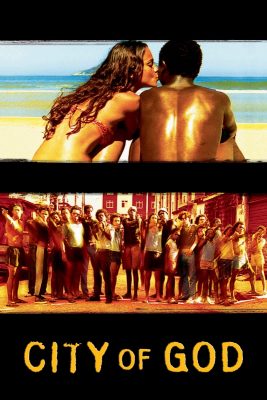
The film “City of God” (2002) opens with a riveting chase in a favela known as the Cidade de Deus (“City of God”). The focus is on a young man, the narrator nicknamed Rocket (Alexandre Rodrigues), who finds himself caught between an armed gang and an escaped chicken.
The Birth of the Favela and the Tender TrioThe narrative then moves back to the 1960s, depicting the favela as a newly erected housing project lacking resources. Three amateur thieves, known as the “Tender Trio” – Shaggy (Jonathan Haagensen), Clipper (Jefechander Suplino), and Rocket’s older brother, Goose (Renato de Souza) – commit small-scale thefts, sharing their spoils with the community who, in return, protect them from the police.
The trio is accompanied by an ambitious young boy, Li’l Dice (Douglas Silva). Dice convinces them to rob a motel, but against the trio’s intention of not killing anyone, Li’l Dice murders all the motel occupants, drawing considerable police attention. This event forces the trio to separate.
Transformation and Turmoil in the City of God
By the 1970s, the favela has evolved into an urban jungle. Rocket finds himself among a group of young hippies, develops a liking for photography, and is drawn to a girl named Angélica (Alice Braga).
Meanwhile, Li’l Dice, now calling himself “Li’l Zé” (Leandro Firmino da Hora), has established a thriving drug empire alongside Benny (Phellipe Haagensen), eliminating all competition except for Benny’s friend Carrot (Matheus Nachtergaele).
Rocket inadvertently lands in Zé’s apartment during a raid but is spared on Benny’s intervention, who reveals Rocket’s relation to Goose. For a time, relative peace descends upon the City of God under Li’l Zé’s rule.
Conflict, Betrayal, and a Gang War
During Benny’s farewell party, tension escalates, leading to Benny’s death and a declaration of war between Li’l Zé and Carrot. Li’l Zé commits a heinous act against Knockout Ned (Seu Jorge), a respected veteran, pushing Ned to side with Carrot, thus instigating a deadly gang war.
The Media Spotlight and a Photographer’s Dilemma
A year into the conflict, the war becomes public interest. Meanwhile, Rocket lands a job with a newspaper company. His photographs of the gangsters brandishing their newly acquired weapons, published without his knowledge, garner widespread acclaim. Despite fearing Zé’s retaliation, Rocket is offered an internship for more photos.
Later, he secretly captures a photograph of the corrupt police releasing Li’l Zé in exchange for a bribe.
The Final Showdown and Aftermath
The story comes full circle to the opening scene. During a violent confrontation, Knockout Ned and Li’l Zé are killed. Rocket faces a moral dilemma – to publish the photo exposing the corrupt police or Li’l Zé’s death, thereby securing his place at the newspaper. He chooses the latter.
In the concluding scene, the Runts are seen planning to take over the drug trade, promising a future filled with violence and chaos in the City of God.
Movie Review
“City of God” is a 2002 Brazilian crime drama film directed by Fernando Meirelles and co-directed by Kátia Lund. Based on true events and set in the favelas of Rio de Janeiro, the movie explores the lives of different characters caught in a web of violence, drugs, and poverty.
The film is a raw and gritty portrayal of the harsh realities faced by the inhabitants of the City of God, a neighborhood plagued by crime and gang warfare. Its compelling storytelling, dynamic visuals, and powerful performances have made it a critically acclaimed masterpiece and a significant contribution to Brazilian cinema.
The film’s visual style, from its frenetic editing to its vibrant color palette, captures the energy and chaos of the favelas. The use of handheld cameras and kinetic camera movements adds a sense of immediacy and authenticity, immersing the audience in the volatile world of the characters.
The screenplay, written by Bráulio Mantovani, weaves together multiple storylines and characters to paint a comprehensive portrait of life in the City of God. The film explores themes of survival, fate, and the cyclical nature of violence. It presents a harsh and unflinching depiction of the socio-economic challenges faced by the characters, offering a powerful critique of the systemic issues that perpetuate poverty and crime.
The film delves into the characters’ dreams, aspirations, and struggles, humanizing them and showing the impact of their choices. The performances by the predominantly non-professional cast are remarkable, bringing authenticity and emotional depth to the characters’ experiences.
The film’s musical score, composed by Antonio Pinto, blends traditional Brazilian music with contemporary sounds, adding an extra layer of energy and cultural richness to the storytelling. The music complements the visuals and enhances the emotional impact of key scenes, reflecting the emotions and struggles of the characters.